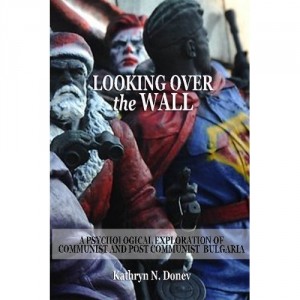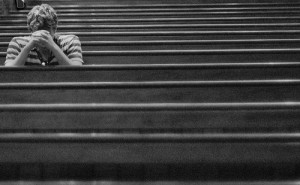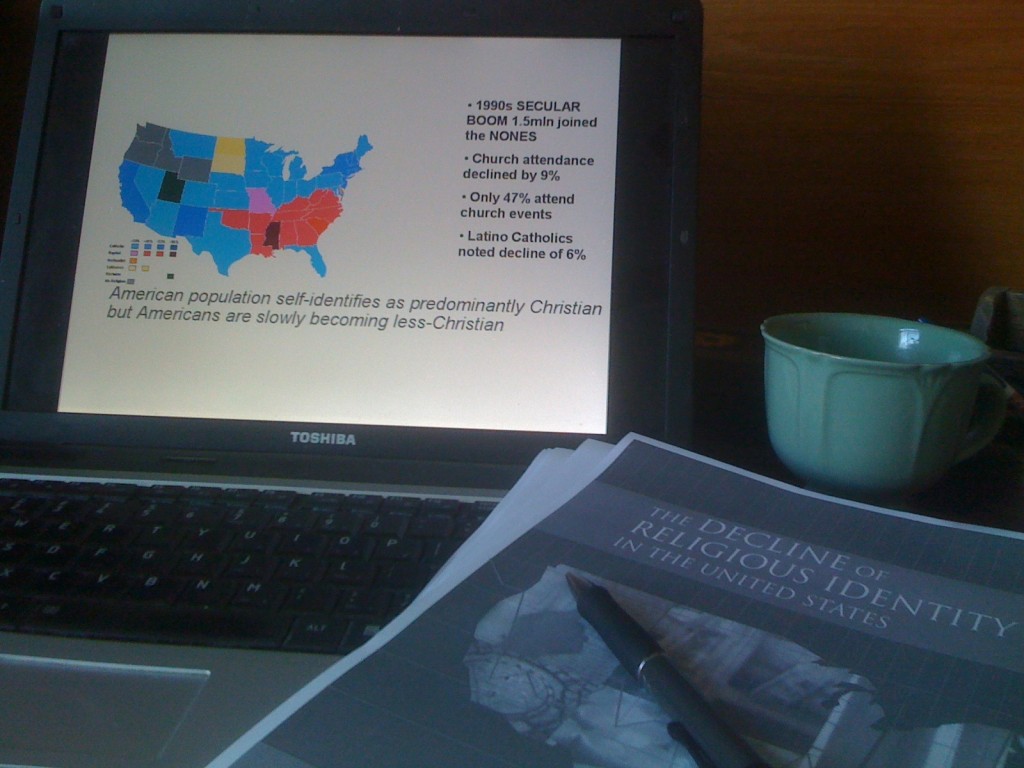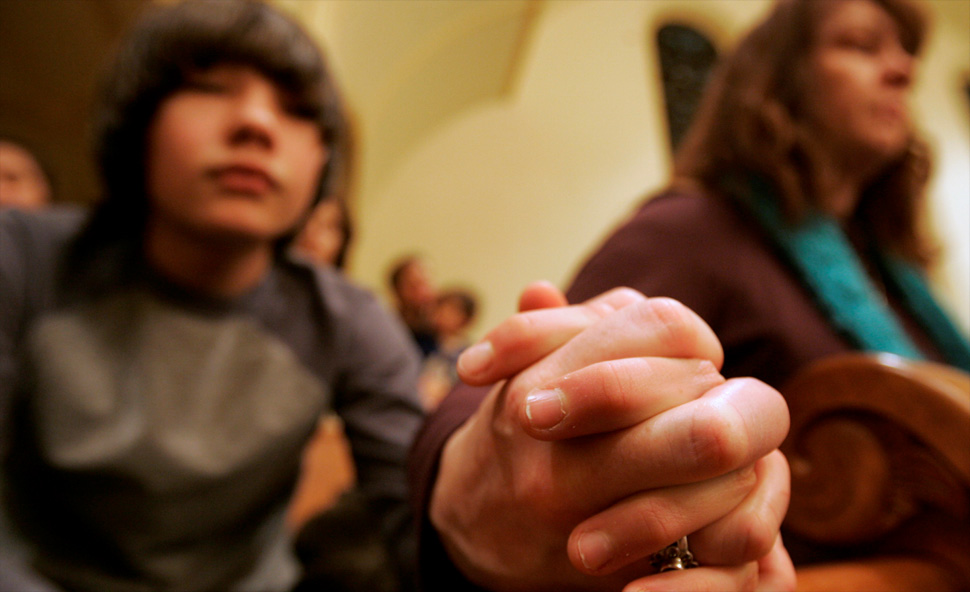National Identity and Collective Consciousness of the Bulgarian Community
 In understanding the history of the advancements in psychotherapy in Bulgaria and the foundations of the country as a whole, we gain a glimpse into the national identity and collective consciousness of a community; one which was formed by a strong people; a people that strive for religious freedom and the quest for knowledge; one that overcame oppression, trial and, hardship.
In understanding the history of the advancements in psychotherapy in Bulgaria and the foundations of the country as a whole, we gain a glimpse into the national identity and collective consciousness of a community; one which was formed by a strong people; a people that strive for religious freedom and the quest for knowledge; one that overcame oppression, trial and, hardship.
For many Bulgarians, communism was not simply a set of ideological directives, but it permeated nearly all spheres of social life. Communism and the lasting effects on its population is not one that is comfortable to recollect. It is neither something that is easy to understand and we may never fully comprehend the post communist mentality. And perhaps we should question those who make such claim.
However, if left ignored, we ignore an undeniable part of history and identity. The danger in not recollecting is that we may in doing so, ignore the possibility for change. Recognition is the first step toward change and empathy. It is only via the shoes of empathy that we can walk in the paths of genuinely comprehending the post communistic mentality and another culture.
Excepts taken from “LOOKING OVER the WALL”
A Psychological Exploration of Communist and Post Communist Bulgaria
Copyright © April 12, 2012 by Kathryn N. Donev
© 2012, Spasen Publishers, a division of www.cupandcross.com
RELATED ARTICLES:
[ ] Obama, Marxism and Pentecostal Identity
[ ] A Psychological Exploration of Communist and Post Communist Bulgaria
[ ] Insight into Communist Agent Techniques in Bulgaria
[ ] The Bulgarian Evangelical Believer and Communistic Consequences
[ ] Distinct Historical Memories of the Bulgarian Mindset
[ ] National Identity and Collective Consciousness of the Bulgarian Community
The Bulgarian Evangelical Believer and Communistic Consequences
 The collapse of Bulgaria’s previous social order, communism, left the country with a moral and ideological void that was quickly filled with crime and corruption. A culture originally shaped by communism currently is influenced by capitalism and democracy. Post communist mentality with definite Balkan characteristics rules the country as a whole. This mentality holds captive nearly every progressive thought and idea. In the post communist context, the atheistic mind is a given and even when an individual experiences a genuine need for spirituality, in most cases he or she has no religious root to which to return other than Orthodoxy. This lack of alternative or spiritual choice produces a pessimistic morale.
The collapse of Bulgaria’s previous social order, communism, left the country with a moral and ideological void that was quickly filled with crime and corruption. A culture originally shaped by communism currently is influenced by capitalism and democracy. Post communist mentality with definite Balkan characteristics rules the country as a whole. This mentality holds captive nearly every progressive thought and idea. In the post communist context, the atheistic mind is a given and even when an individual experiences a genuine need for spirituality, in most cases he or she has no religious root to which to return other than Orthodoxy. This lack of alternative or spiritual choice produces a pessimistic morale.
From an environment of uncertainty and hopelessness, the Bulgarian Evangelical believer turns to the continuity of faith in the Almighty Redeemer. Pentecostalism as practical Christianity gives a sense of internal motivation to the discouraged. In a society that is limited in conduciveness for progression of thought or self actualization, one finds refuge in the promises of Christianity. It becomes a certainty which can be relied upon. Historically, having undergone severe persecution, the Bulgarian Evangelical believer is one who possesses great devotion to his or her belief. Having to defend the faith fosters a deep sense of appreciation and in an impoverished country, faith becomes all some have. Christ becomes the only one to whom to turn for provision. In the midst of this complete dependence is where miracles occur. Furthermore, it is in the midst of miracles where the skepticism which is prominent in post communist Bulgaria is broken. When those who believe are healed from cancer and even raised from the dead, there is no room for disbelief or low self-esteem. Surrounded with insecurity and uncertainty, the Bulgarian Evangelical believer finds great hope and comfort in the fact that God holds the future in His hands. Christianity is a reality that is certain.
Excepts taken from “LOOKING OVER the WALL”
A Psychological Exploration of Communist and Post Communist Bulgaria
Copyright © April 12, 2012 by Kathryn N. Donev
© 2012, Spasen Publishers, a division of www.cupandcross.com
RELATED ARTICLES:
[ ] Obama, Marxism and Pentecostal Identity
[ ] A Psychological Exploration of Communist and Post Communist Bulgaria
[ ] Insight into Communist Agent Techniques in Bulgaria
[ ] The Bulgarian Evangelical Believer and Communistic Consequences
[ ] Distinct Historical Memories of the Bulgarian Mindset
[ ] National Identity and Collective Consciousness of the Bulgarian Community
The Immature Mind and the Effects of Information Processing Associated with Indoctrination
 by Kathryn N. Donev, M.S., L.P.C.
by Kathryn N. Donev, M.S., L.P.C.
The following is a response to the most recent developments within Bulgarian laws dealing with Educational Reform making it mandatory that children begin attending public school at the age of four years old.
The mind of a child is an extremely fragile organism that is malleable with the potential to be molded into whatever a caregiver chooses. It is a great responsibility to raise children and much love and guidance has to be given in order for a child to become a healthy functioning part of any society.
Before age six, give or take a year or so, is when a child is most impressionable and is most influenced by learning information and forming realities and constructs. It is before age six that a child’s mind has most neuroplasticity, although our minds are always capable of change. It is during this period when reorganization of neural pathways and long lasting functional changes in the brain occurs as we take in new information.
When the immature brain first begins to process sensory information is when it is most malleable. Indoctrination can occur at great rates and if accomplished before the age of six, then these teachings are so deeply ingrained within that it becomes nearly impossible to change or re-wire the neural pathways which have been formed. Accordingly to neuroscientists, by the time an infant is two or three years old, the number of synapses in their brain is approximately 15,000 per neuron, which is twice the amount of an average adult. This gives insight into how absorbent and thirsty the brain is for knowledge. At the same time, a child’s brain is very impressionable without yet having the ability to rationally sensor the intake of information. Meaning, they will believe whatever a caregiver tells them because they have no other reason but to innocently trust at this early age.
Since a young child’s memory has not yet fully developed, learning takes place by being told and retold what to do. They have to be indoctrinated. And it is the greatest responsibility of a caregiver to choose the most appropriate principles and values to teach a child. By age three or four, the parent or primary caregiver still is their “external conscience,” reinforcing their memory of what they’re supposed to do.
According to Erikson’s stages of child development, it is around two-four years when a child enters into the “Will: Autonomy vs. Shame and Doubt” stage in which they encounter life and ask the question if it is okay to be themselves. This question is answered with how the world around them responds to their actions. This period of time is when a child, in gaining control over eliminative functions and motor abilities, will begin to explore their surroundings. If a parent is patience and encouraging, autonomy will be fostered within a child. A caregiver must encourage self-sufficient behavior in hope to develop a sense of autonomy in order to being competent to face life challenges independently. But if caregivers are too demanding, refusing to let children perform tasks of which they are capable, or ridicule early attempts at self-sufficiency, children may instead develop shame and doubt about their ability to handle problems. Now if it is the intent to diminish this fostering of self sufficiency, then it is right at the age of 4 when a child can be influenced to be dependent and self-doubting.
It is during the next developmental stage, “Purpose: Initiative vs. Guilt” that a child asks, “Is it okay for me to be proactive?” in attempts to master the world around them and learn basic skills. At this stage, the child wants to begin and complete their own actions for a purpose. The development of courage and independence are what set preschoolers, ages three to six years of age, apart from other age groups. During this stage, the child learns to take initiative and prepare for leadership and goal achievement roles. However, if a child is striped away from this ability to take initiative, then their purpose is stripped away.
A child has to be given times of self-taught or self-thinking in order to form within a sense of identity; personal and not corporative identity or knowing their true self. If this is not allowed, then confusion sets in and results in midlife crises. After for years having lived exactly how you have been instructed and after having believed all of what you have been told to believe, an awakening takes place that this perceived reality does not meet up with your real internal being and destined reality.
If a child is not allowed to think for themselves and explore on their own at this young age outside of systematic education, then they will never reach the stage of development which is known as “Competence: Industry vs. Inferiority”. The consequences are self-explanatory. Inferiority and doubt set in and this child becomes a product of the system and is void of internal motivation, will and desire to make a change for the betterment of the society. They become cogs in a wheel and the result of a communistic effort.
If we give over our children to a state school system at early and early ages, the parents’ rights are being stripped away. The choice to teach morals of right and wrong or beliefs is only available for a limited time and shared with an organization with limits. A child has no one to speak for themselves at such a young age and they will believe that the sky is green if they are told it is so. It is by around age six that normal children are developing an internal conscience. By age six, they have formed this conscience based on what they have been taught is truth, is right and is wrong. These first six years of development are the most crucial and should not be trusted to anyone else or any other organization that may have hidden agendas. If a child is asking if it is okay to be themselves and they are told it is not, but rather they have to be what a government or a society insists, then confusion arises.
Let children be children and the children that they are intended to become naturally and innocently void of any motive. Let us foster a society of thinkers with independent minds free to make choices. Democratic principles should be applied on all levels of society. We always hear of child rights including stopping physical and emotional abuse, but we rarely are faced with having to protect our children’s minds. Awareness is the first step in prevention and we have to at all cost, protect the rights of our children. Our children only have our mouthpiece to protect them…
12 Benefits from Walking in the Desert for 40 Years
1. You lose excessive weight you don’t need
2. You lose treasures/gold you thought you needed
3. You go on God’s diet
4. You learn your true friends/brothers and sisters
5. You learn to trust God daily
6. You learn to keep walking
7. You see your enemies defeated by God
8. Walking in the desert takes you to the top of God’s mountain where you meet God
9. Your children receive the Promise Land
10. There is a generational genetic cleansing of unfaithfulness. When the faith of a generation grows, the faith of the nation increases
11. You learn to walk in unity or you get lost and die alone
12. You begin to appreciate the small things in life (like bread and water)
Does the God To Whom You Pray Answer?
 Response to Rev. Jesses Jackson’s “There’s Still More to Be Done” lecture at the University of Nebraska | by Kathryn Donev
Response to Rev. Jesses Jackson’s “There’s Still More to Be Done” lecture at the University of Nebraska | by Kathryn Donev
We as a society, as a culture, have come a long way indeed. And this is a good thing. Equality is a good thing. Independence is a good thing. Rights are a good thing. Voice is a good thing. And here comes the “however”. When our right to all of this freedom becomes perverted into selfishness is when I begin to question this idea of social justice. What is the purpose of such? Is it not for equality and solidarity together? When the latter is lacking there is no social justice. When your rights begin invading on mine then there appears to be a contradiction with neither social nor justice. Does freedom of speak serve it’s function when it invades on the opinions and belief system of another? In the midst of this rising post modernistic mentality, it appears that there is freedom for all but one group called Christians whom are becoming the minority not even standing up for themselves.
We have turned into a culture who is loyal to nothing and everything at the same time; those whom occupy for a purpose unknown to themselves, those who fight for the right to be right. All values are acceptable, all beliefs are true, all gods are God. This protest for social justice confuses and in turn controls. I do believe that everyone should have the right to fight for the right to fight but when we are fighting for acceptance of no absolutes and only objective truths there is something wrong and I cannot remain silent sitting at the back of the bus. Of course I agree with the stand against classification however a line needs to be drawn when we begin to fight against the distinction of right and wrong, of good and evil. I remember a time when right was right and wrong was wrong; when white was white and black was black and I am not talking about the color of your skin. If there is no distinction between good and evil, righteousness is obsolete. With all being relative, there is no literal Heaven or Hell. Spirituality is no longer synonymous with religious. You can pray to which ever god you choose or all gods at the same time just in case. Yet, regardless of your beliefs, the true test will be if the god to whom you are praying answers. There most definitely is still more to be done.
Teaching at the University of Nebraska Again

The Land of Pentecostals
A brief Interaction with Walter Brueggemann
by Dr. Dony K. Donev
Since I began studying Pentecostal history sometime ago, I have pondered the question of space and how we, Pentecostals, associate with it. Perhaps, on a larger scale, all Christian associate with space and location, but for Pentecostals it somehow becomes part of the identity of a given event, process or even person. This association is so strong that we simply cannot tell our history without it. And how is one even expected to tell Pentecostal history without places like the Bethel School of Healing, 214 Bonnie Brie Street and the Azusa Street Mission? Or how are we supposed to tell our story, to give our testimony of events significant and central for our spiritual life without a place and a location, which in most cases defines them all? For example, our salvation is connected the place where we were saved and sanctified; baptism with water or with fire from above; healing on the spot at a given prayer meeting, miracle service or church revival. And even eschatology, always undividable from the meeting in the clouds and the Heavenly city.
For Pentecostals, the Full Gospel teaching is a covenant theology because it ultimately subscribes to the quest for the Promised Land. But, I’ve never been able to pin point the reasoning behind this until reviewing anew Brueggemann’s study of “The Land” and comparing his ideas with Pentecostal history and praxis through the following quotes that will exchange perspectives with the questions stated above and hopefully stir further thinking.
p.5 “Space” means an arena of freedom without coercion or accountability, free of pressure and void of authority. …. But “place” is a very different matter. Place is space which has historical meanings, where some things have happened which are now remembered and which provide continuity across generations. Place is space in which important words have been exchanged, which have established identity, defined vocation, and envisioned destiny. Place is space in which vows have been exchanged, promises have been made, and demands have been issued. Place is indeed a protest against unpromising pursuit of space. It is a declaration that our humanness cannot be found in escape, detachment, absence of commitment, and undefined freedom.
Whereas pursuit of space may be a flight from history, a yearning for a place is a decision to enter history with an identifiable people in an identifiable pilgrimage.”
p. 11 “The very land that promised to create space for human joy and freedom became the very source of dehumanizing exploitation and oppression. Land was indeed a problem for Israel. Time after time, Israel saw the land of promise become the land of problem.”
p. 15 “….land theology in the Bible: presuming upon the land and being expelled from it; trusting toward a land not yet possessed, but empowered by anticipation of it.”
p. 27 “The action is in the land promised, not in the land possessed … So Jacob, bearer of the promise, is buried in Canaan under promise.”
p. 42 “Presence is for pursuit of the promise …. The new people, contrasted with the old, are promise-trusters, rooted in Moses, linked to the faith of Caleb, and identified as the vulnerable ones. His presence is evident in his intervention not to keep things going, but to bring life out of death, to call to himself promise-trusters in the midst of promise-doubters.”
p. 47 “Israel knew that in his speaking and Israel’s hearing was its life. That is why the first word in Israel’s life is “listen” (Deut. 6:4)! Israel lived by a people-creating word spoken by this people-creator (Deut. 8:3).”
p. 51 “Both rain and manna come from heaven, from outside the history of coercion and demand.”
p. 53 “Israel does not have many resources with which to resist the temptation. The chief one is memory. At the boundary [of Gilgal] Israel is urged to remember …. Remembering is an historic activity. To practice it is to affirm one’s historicity.”
p. 54 “Land can be a place for historical remembering, for action that affirms the abrasive historicity of our existence. But land can also be, as Deuteronomy saw so clearly, the enemy of memory, the destroyer of historical precariousness. The central temptation of the land for Israel is that Israel will cease to remember and settle for how it is and imagine not only that it was always so but it will always be so. Guaranteed security dulls the memory …. Israel’s central temptation is to forget and so cease to be a historical people, open either to the Lord of history or to his blessings yet to be given. Settled into an eternally guaranteed situation, one securely knows that one is indeed addressed by the voice of history who gives gifts and makes claims. And if one is not addressed, then one does not need to answer. And if one does not answer, then one is free not to care, not decide, not to hope and not to celebrate.”
p. 56 “The land will be avenged preciously because land is not given over to any human agent, but is a sign and function in covenant. Thus arrayed against the monarchy are both the traditionalism of Naboth and the purpose of Yahweh.”
p. 57 “Israel finds itself in history as one who had no right to exist. Slaves become an historical community. Sojourners become secured in land …. Non of it achieved, all of it given …. And the way to sustain gifted existence is to stay singularly with the gift-giver.”
And the following conclusions: as Pentecostals, we associate with places and location, we ultimately associate with land as part of our covenant theology, because:
1. In the land we place our own historical meaning, our part and role in history, as well as the spiritual heritage we have received and we give to a next generation; thus, place itself becomes not only where our history happens, but a defining part of our historical identity as a people.
2. Enduring the promise of a land not yet seen, but already received by faith, has indeed been the formative factor in any and all Pentecostal movements around the globe, as well as the initiative to restore the social order for peoples whose land has been taken away unfairly. We have even learned, that when the Promised Land becomes a land of problem, we must return to the promise in order to remain a movement after the move of the Holy Ghost and not merely a nominal denomination.
3. As humans, we localize the omnipresence of God to the place of our experience with God – the place where God has become personal for us. And this is the place, where we dare say, we have received the promise of God. Although His promise may not yet be visible in reality, having come from our experience with God, it creates a reality which is much more real than the present reality. In that sense, the very act of receiving the promise that comes from outside of history and through hearing the voice of God, recreates our reality and future.
4. Main, among other temptations for us, is the temptation to forget the land, the place of promise and meeting with God – where we come from, where we have been and where we are going. Just as Israel, this act of forgetting denotes our ceasing from being a historical people.
5. And just like Israel did, Pentecostals find themselves without the right to exist. Yet, the association with the land, and not merely any land but the Land of Promise, gives us not only a right of existence, but also an identity which no one, not even us, can change or redefine, except the Giver of the Promise. And this is the function of the covenant and the association of our personal experience with God to a place, a location, a spot in history where our lives were once and for all changed for eternity.
Looking Out of the Corner of Their Eyes: An Analysis of the Trend in Spiritual Development of Youth in Bulgaria
The Bulgarian Pentecostal movement is rooted in the Azusa Street Holiness Revival, which began in April of 1906. As a result of the revival, which followed throughout the United States less than a decade later, denominations such as the Church of God (1896) and Assemblies of God (1914) were established and sent missionaries to foreign lands including Bulgaria. After Assemblies of God missionaries to Eastern Europe Zaplishny and Voronaev embarked on their missionary endeavors in the 1920s, Bulgaria officially received the message of Pentecost. However, when Communist Dictatorship began in 1944, religious freedom was repressed and forced Pentecostal believers underground for 45 years until the Fall of the Berlin Wall in 1989.
From this oppression, Christians became creative in where and how they would gather. Services were held in secret rooms, moving from one house to the next and literally underground. During difficult times they would even gather in secluded mountain plains and hold services, which would last for days at a time. Even to this day, this tradition is kept where every year believers will assemble together for a time of praise and worship. And it is from these times that branched other church movements, which attempt to replicate this experience with a focus on evangelizing the youth of Bulgaria. However, some of these attempts have not been very successful. These movements successfully target young people, but the experiences which they are having are not as their fathers and grandfathers. Unfortunately, they are somewhat superficial and have become a time of leisure and socialization. There has been a perversion of the genuine experiences of the past in this attempt to simply copy what is happening without having a sincerely encounter with God. The church attempts to keep the tradition without having the experience.
Yet, in the midst of these movements of camps, rallies, mega services, concerts, there are young people which do have a genuine encounter and are on fire for God. But unfortunately, these movements with a lack of a better word are not properly equipped with a follow through plan in which the youth can be plugged into a local church where they can be discipled. It is almost as if the churches do not have an internal program for youth because they are relying on the many external activities to minister to their youth.
Many Bulgarian congregations are struggling with how to motivate their youth locally. They are confused why during the times of conferences and camps youth appear to be on fire for God, but when they return to their local church, for the ones who have a local church, they “lose” this drive. The simple, simple answer to this is that our youth are lacking in a strong internal biblical foundation. Youth need this foundation to build on in order to genuinely grow in Christ. Therefore, the churches’ focus should be to educate our children and give a solid Biblical basis as opposed to waiting until they are lost to gather them in a camp and attempt to reach them. If ones motivation is based internally, no external factor will be needed to motivate your youth. There is no substitute for an internal passion for Christ for when something is internal it does not come and go with a movement or trend. This foundation comes from our fathers and mothers and from the local church.
Youth are ready for a serious authentic move of the Spirit, which is Biblical based in the foundation of the roots from which their faith is grounded. When understanding from where you came, you will be able to appreciate your here and now. Meaning that in identifying with your roots you know who you are and do not waiver with movements. But for those whom have had a genuine encounter on the mountain tops, so to speak, where are they to go? Who will father them? With the crisis in leadership in the churches of Bulgaria, there is a spirit of discouragement and distrust among believers. This is harsh to say, but should not be kept silent simply because of pride. Only when Bulgaria is ready to recognize this, will it be ready to genuinely minister to youth. It is only then that the young people will have a place to go and someone to minister to them. For how can one minister to another when they themselves are occupied with bitterness and power.
Children from birth watch everything. All is new to them, everything is interesting and they are instinctively curios. This curiosity is a God given desire in order to learn and grow. When a child is learning to pray they are told to bow their heads, close their eyes and listen to the words of their parents, but if you observe this process closely you will notice that a child will at first peak around. Why do they do this? Initially, one might think that a child is just playing around and not taking prayer seriously, however this is not the case. They look out of the corner of their eye and peak around in order to watch and see what you do and how to pray. They cannot learn when their eyes are closed. They have never before closed their eyes to pray and need a model.
So just as children look to their fathers and mothers to learn how to pray, the Bulgarian youth are looking to their spiritual fathers to know how to pray. With much sorrow I say the following: these children do not like what they are seeing. They peak out of the corner of their eye and see arguing, hostility, selfishness, depression, burnt-out, and worst of all, they do not see their fathers praying. They do not see their fathers fasting. If a father does not pray or fast how will the children know how to do these biblical acts. This lack of spiritual discipline leads to a rebellion against the church in which you hear from the mouths of babes “I believe in God, but I don’t believe in the church”. This factual quote should be eye opening. Yet instead, we keep our eyes wide shut. We need to overcome the lie that if we do not see things or problems, they do not exist. It is time to listen to what we know is truth.
So on one hand, we have a lost generation that does not have any faith in organized religion and on the other, we have a generation of youth that is hungry if not starved. They are hungry for solid foods and tired of living off babes milk. They are ready for a real experience and need spiritual parents. Who is willing to be that spiritual father? Who is willing to stop arguing? Who is willing to open their house again to be a home for the spiritual orphans of Bulgaria? Let the church once again be a place of refuge and not a place to be prostituted out to the highest bidder. Let the pastor genuinely be a father again instead of a corrupt politician. Let the children of Bulgarian have a voice, because if their voice is taken away today, they will have no future tomorrow and be lost for an eternity. This is not a price we should be willing to pay.
This article is based on a word the Lord gave me on 09/09/2010 that “The Children of Bulgaria are looking out of the corner of their eyes up to their fathers and not liking what they are seeing”.
-Kathryn N. Donev
2011: The Year of the Bamboo
While preparing our annual report of over 50 completed projects in 2010, we shared a few thoughts with a close friend and partner in the ministry. For one or another reason, our impression has been that things appear to be moving slower than expected while working with the Bulgarian Church of God in the context of some 40 various denominations in the period 2005-2010.
Our efforts in the ministry have contributed to several major developments like a ministry center in the capital Sofia, the start of a national Sunday school program and a master’s program in chaplaincy, the international X Youth Event, national youth ministry Bible camp and the Leadership Training Seminar (LTS) to mention a few. But this success in ministry has not been without many painful and exhausting days and nights of praying, planning, organizing, gathering the needed resources and trying to stay away from destructive politics and man-made divisions.
So it was not until the last quarter of 2010 that our efforts began reshaping the reality around us as we quickly realized the long-term projects had finally come to completion. As a result, just during the last three months in Bulgaria, we brought to finishing point major goals of our ministry and completed work which generally would have taken us a year time. And it was awesomely encouraging as we watched goal after goal being completed literally over night.
Our friend listened closely to this great testimony of the ministry and quickly compared it to the story of the bamboo. The strongest and fastest growing wood on the planet does not grow 20 inches over night without several years of long preparation. During this time, the roots spread rapidly in the soil clamping together in a strong underground system that will serve as the foundation to the future plant. They remain unseen under the surface until the day the first spurs shoot out of the ground.
2011 will be the year during which ministries with global vision that have worked hard and long for years, following Spirit led investing of time, efforts in resources in projects and goals that seem unreasonable, unnecessary and foolish to others, will see the spurs of their efforts shooting out of the ground over night. And then, no one will be laughing at the vision any longer.
For others, it will be a wonder, but these ministries will know that many years of hard labor and efforts have finally brought long waited results. For the only way to have a fast growing strong ministry is to take the time for preparation. 2011 calls for an end of preparation and a time of new growth.
Prophetic Presence: The Sign of the Seers
 For many years now, as a student of both Pentecostal theology and history, I have always wondered of the ever-present desire for Pentecostals to associate themselves with physical addresses. It is indeed strange, for as a movement of the Spirit we have always strived to remain on the go, being always persecuted or ever-changing as people of God. So I am astounded every time I come across a historic attempt to redefine our identity with a place or a location.
For many years now, as a student of both Pentecostal theology and history, I have always wondered of the ever-present desire for Pentecostals to associate themselves with physical addresses. It is indeed strange, for as a movement of the Spirit we have always strived to remain on the go, being always persecuted or ever-changing as people of God. So I am astounded every time I come across a historic attempt to redefine our identity with a place or a location.
The examples are many. From the very inception of the term “spirit-filled” people on the day of Pentecost, we have always associated our experience with an attempting to restore the identity of and struggled to return to the spiritual context in the experience of the Upper Room – a definite location in the city of Jerusalem. Then Paul, before ever answering his apostolic call and entering what would turn to a global ministry, was instructed to go the street called “Straight” – and this was not just a personal experience of Paul, but a corporate calling that includes the prophetic gift of another man and affected the future of the Early Church as we know it.
The early Pentecostal revivalists are best known with the name of Azusa Street, but not before establishing various locations across the country setting a spiritual rout, a geographic walkabout from the Bethel Bible College to the Santa Fe Mission, reaching the small house at 214 North Bonnie Brae Street and the Azusa Street Methodist Mission by 1906.
Synan records that there: “They shouted three days and three nights. It was Easter season. The people came from everywhere. By the next morning there was no way of getting near the house. As people came in they would fall under God’s power; and the whole city was stirred. They shouted until the foundation of the house gave way, but no one was hurt.”
But it was not until the morning of April 18, 1906 that the prophetic presence of the Azusa Street Pentecostal revival received its full recognition. Once the Great San Francisco earthquake hit California, just as early Pentecostals had prophesied, there was no need for preaching or witnessing any longer. Their prophetic presence was evidence in full. For the assigned geographical location for our vision contributes little to our identity in the ministry. It is a prophetic sign for the people we witness to. And this is a Biblical principle.
John the Baptist associated his ministry with the desert. John the Apostle, with the island called Patmos. The Old Testament prophet laid on his side for 390 long days being seen by all. That is one long year and one whole month according to the Jewish calendar. Then 40 days more on his other side, just like the bodies of the two prophets will lay dead for the three days of Revelation. The Seers were there, seeing the future and proclaiming it to the present through nothing less than a prophetic presence. For the Seers must be seen in order to reveal the vision they have seen in the Spirit, in order that both the world and church blinded by sin, can see the vision of the unseen and invisible God.











